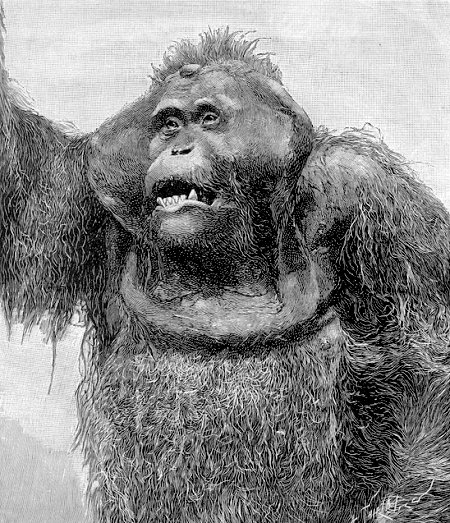Ishmael
Today, a telepathic gorilla tells us how to save the world. The University of Houston's College of Engineering presents this series about the machines that make our civilization run, and the people whose ingenuity created them.
A listener recently gave me a disturbing book: Daniel Quinn's Ishmael. It begins with a white-collared city dweller reading an ad in the personals column: "TEACHER seeks pupil. Must have an earnest desire to save the world. Apply in person."
He's annoyed, but he's also intrigued. He has to check it out. So he goes to meet the teacher. It turns out to be Ishmael, an erstwhile carnival gorilla who happens to be telepathic.
The rest of the book is a dialog between the man's words and the gorilla's thoughts. First, Ishmael explains his unlikely self. Then he gets down to serious Socratic teaching. And Quinn's new take on our environmental dilemma emerges.
Ishmael claims that all intelligent life listens to the voice of its Mother Culture. The trouble is, Ishmael tells him, your Mother Culture says you're not just an ongoing part of evolution but its end product. Because of her voice, you violate the one natural law all living things are subject to. "Take what you need and leave the rest." You humans have violated that law ever since you took up agriculture and began creating surpluses.
Genesis, says Ishmael, is the oral history of the nomadic pre-agricultural Semites. It was a warning to the agricultural Israelites that they were breaking nature's law. But when the Israelites adopted Genesis, they focused on the part about being made in God's image, and so do you. You think you have the right to exterminate competitors. You feel obliged to convert hunter-gatherers to agriculture and over-production -- not only of goods but of people as well. Eve symbolizes the fecundity of your agricultural species.
By believing you're the end of evolution, he warns, you assure the end of yourselves. You defeat other species and over-populate yourselves into extinction. You ignore the law, "Take only what you need." For that, you'll perish just as surely as you'd perish by ignoring the law of gravity.
"What do we do? Go back to hunting and gathering?" the man cries. No, the Gorilla says, you miss the point. You must drop the junk Mother Culture attaches to agriculture and technology. You would-be rulers-of-nature jail yourselves in the terror of losing your flimsy perch at the top -- the terror of extinction. You think God was kidding with that Lilies of the Field stuff, says Ishmael, chewing thoughtfully on a branch. He was not.
Read Quinn's upsetting book. It offers hope against our self-destruction. If we can just get away from the conviction that we are all that nature is about, then human survival -- improbable as it may seem now -- might not be out of the question after all.
I'm John Lienhard, at the University of Houston, where we're interested in the way inventive minds work.
(Theme music)
Quinn, D., Ishmael, New York: Bantam, 1992/1993.
I did this program back in 1994. In January of 2003 a reader named Howard emailed me with the following interesting web site put up by a group that calls itself, The Friends of Ishmael: http://www.friendsofishmael.org/index.shtml.

(clip art image)